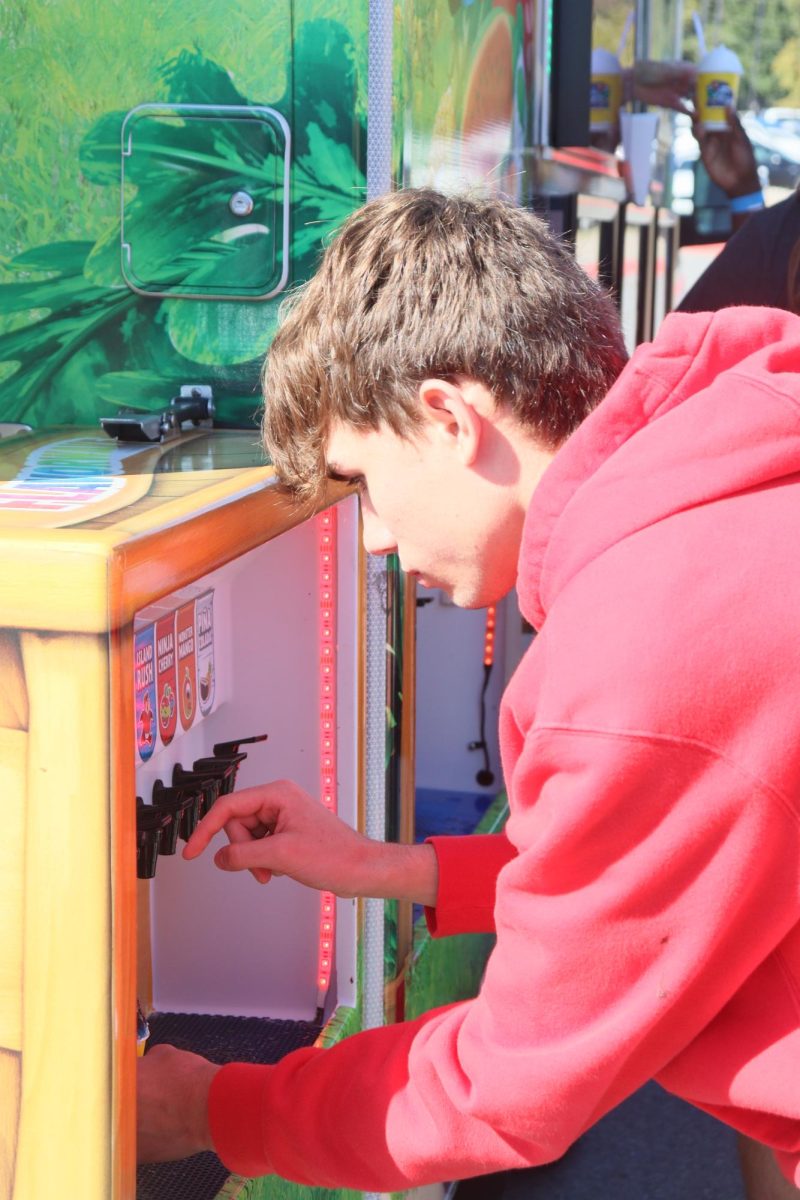Tips to Counteract Seasonal Depression
What habits can you bring into your life to make you happier?
March 2, 2022
Winter is here. The days are shorter and colder. To some, this means hopes of snow and winter outfits. However, the cold weather can cause some people to experience depression or a worsening in their depression.
Seasonal Affective Disorder, otherwise known as SAD or seasonal depression, is defined by the Mayo Clinic as a type of depression that’s related to changes in season. Some symptoms of seasonal depression are a change in appetite, apathy, fatigue or hopelessness.
In the midst of college scholarships and applications, all-state and all-region for athletes and musicians, basketball season and coursework, how can students counteract seasonal depression while maintaining self-discipline and meeting deadlines?
- Get enough sleep
Some days, waking up can be the hardest part. Licensed clinical social worker Sean Oakley says some people do better staying up later, while some people do better sleeping earlier. “If you can, go to bed when you’re actually tired,” Oakley said. “A lot of times when we’re depressed, we get sucked into our phones, watching stuff, screens, and it causes us to stay up later, and we’re up later when it’s darker. That’s feeding into the depression.”
SAD can lead people to feeling like they want to oversleep and hibernate, so try to maintain 7-8 hours of sleep each night.
2. Eat healthy meals and snacks
The food you put into your body transforms into your energy. In a 2017 study conducted by pubmed.org, it was discovered that whole fruits, vegetables, grains and low-fat dairy lower the risk of depression, while sweets and high-fat dairy products can increase the risk. Eating protein several times a day can boost energy and clear the mind. Drinking water and preparing food at home opposed to fast-food can also contribute to a more positive mood.
3. Grow your loving relationships
“The most important thing [for managing SAD] are meaningful relationships and connections with others, people to talk to so you really know you’re not alone,” said Oakley. Initiate friend outings and group chats. If you’re a concert lover, Vino’s in Downtown Little Rock plays shows every other weekend. Downtown Benton also has several boutiques, restaurants and coffee shops such as ‘Italy in Town’ or ‘Koffee with a Kause’, as well as the occasional show at the Royal theater for musical fans.
4. Exercise
Any form of physical motion can counteract SAD. Yoga increases mental stability and focus, bringing a calm mind. According to allinahealth.org, exercise releases endorphins which reduces pain and increases a sense of well-being. Exercises like running can also increase self-confidence and create a healthy habit and hobby. Hiking is another great activity that allows you to enjoy scenery and be exposed to the sun.
5. Keep a journal
Journaling can help release thoughts instead of holding onto them. Journaling can also develop the relationship with self through improving the articulation of thoughts and recognizing thought patterns. “It’s good to write out a list of stuff that is meaningful to you,” Oakley said. “Whether it is friends, cooking, eating well, exercising, when that depression comes in and you feel less motivated to do things and you withdraw from things that are important to you, it feeds back into the depression and causes you to spiral down, and that can be hard to get out of.”
6. Be in the sunlight
People who experience SAD need more sunlight than people who don’t have SAD. Sunshine in the morning time can be extremely beneficial for a brighter mood. “I think a big part of why a lot of people have SAD in the winter is because it’s darker earlier and there’s less things to do outside,” Oakley said. “If you can just go sit outside when it’s sunny, even 10-15 minutes a day helps.”
7. Meditate
Just five minutes of focused meditation can greatly influence the rest of the day, improve mood and create a safe space. Don’t get discouraged if you lose focus during meditation, it takes practice to quiet your mind. Linked below are 32 journal prompts for self-care and some good beginner guided meditations.
“The hardest part of managing depression is a lot of it is behavioral,” Oakley said. “You have biological stuff going on that you didn’t choose, so it sucks to deal with it, but what is in your control is your actions and your behavior, so you do kinda have to push a little harder to do the things that are meaningful to you. SAD is a pretty common thing, so just know you’re not alone if you’re feeling that.”








